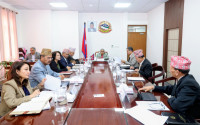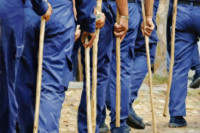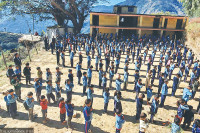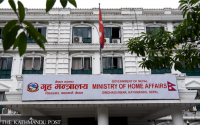National
Nepali children born today will have their lives shortened by 30 months
In the past few years, pollution levels have peaked at unhealthy and hazardous levels in the Kathmandu Valley, increasing health risks for citizens.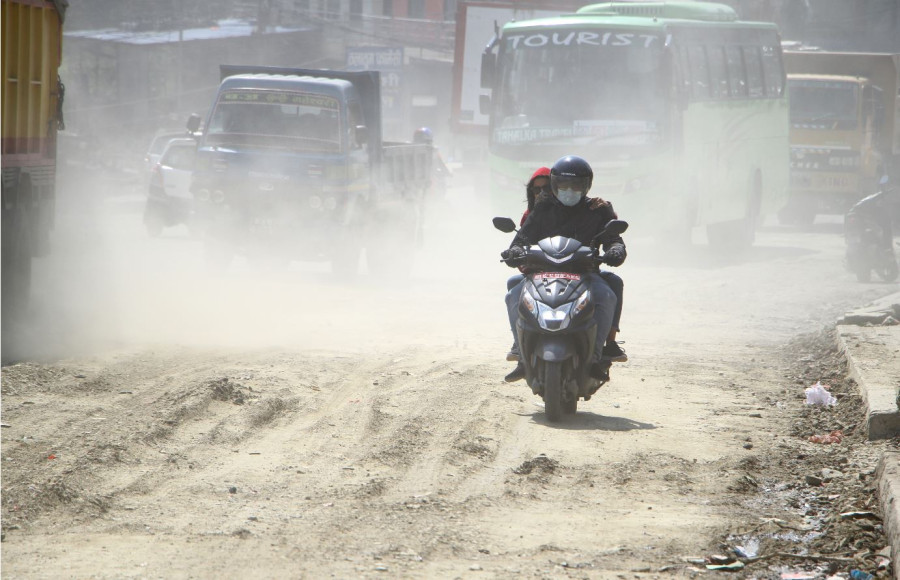
Arpan Shrestha
Toxic air will shorten children’s lives by almost two years and will have the greatest impact in South Asia, according to a special report on global exposure to air pollution and its disease burden, published by the US-based Health Effects Institute.
According to the report, Nepal has the highest levels of air pollution—100 μg/m3—in the world where annual exposure to PM2.5 particulate matter can cause breathing difficulties and cardiovascular issues. The three other countries in the region with dangerous levels of pollution are India (91 μg/m3), Bangladesh (61 μg/m3) and Pakistan (58 μg/m3).
In the past few years, pollution levels have peaked at unhealthy and hazardous levels in the Kathmandu Valley, increasing health risks for citizens. Particulate matter can be both solid and liquid particles—smoke, dust, soot and others—that are suspended in the air, the most dangerous of which is PM2.5.
Air pollution is also the fifth leading cause of death, killing more people than malaria, road accidents and malnutrition or alcohol, according to the State of Global Air 2019 report published on Wednesday.
But in South Asia, the report warns, children born today will have their lives cut short by almost 30 months, because of a combination of outdoor air pollution caused by traffic, industry and dirty indoor air, largely from cooking fires.
In East Asia, the study says air pollution will shorten children’s lives by an estimated 24 months. Compared with 20 months for children in developed parts of Asia Pacific and North America, the report shows that least developed countries suffered from air pollution four to five times worse than developed countries.
In October last year, the UN health body found that exposure to toxic air killed some 600,000 children under the age of 15 each year . It also concluded that children are more vulnerable to air pollution since they breathe more rapidly than adults, which results in more inhalation of pollutants.
The State of Global Air 2018 report estimated that if air pollution levels were brought within the UN health body’s guidelines, Nepal’s average life expectancy would increase by 4.4 years.
A Supreme Court order in January last year had directed authorities to immediately curb air pollution and effectively implement national standards of vehicle emissions and ensure air quality standards in the spirit of the constitution but there has been no government action.




 20.52°C Kathmandu
20.52°C Kathmandu
